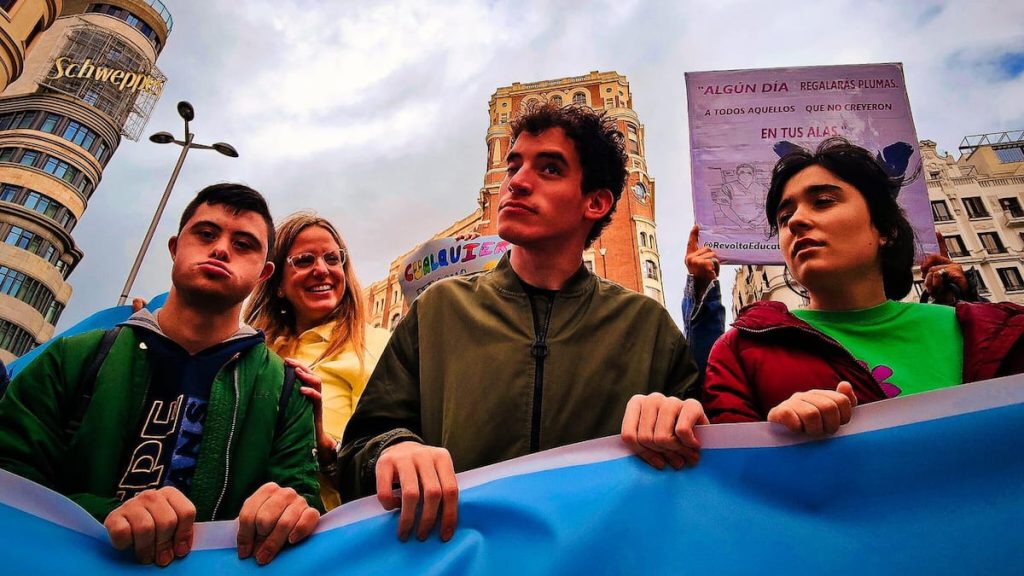The UN Committee on the Rights of Persons with Disabilities has criticized Spain for continuing to enroll thousands of students in special education centers, a practice that the organization “deplores” and considers “segregating.” The committee acknowledges some progress in its report, such as the current education law, Lomloe, stating that mainstream schools must have the necessary resources to accommodate and include students with disabilities within 10 years, in accordance with the international convention. However, official data shows that since the approval of Lomloe in the 2020-2021 school year, the number of students in special education centers and specific classrooms within mainstream schools―also criticized by the UN for separating children―has increased by 2,614, totaling 41,521. This trend has been ongoing for years, as 10 years ago, there were 33,022 students in this parallel school system, representing an increase of 8,499 students.
Mar Álvarez, president of Solcom, one of the organizations that reported the situation in Spain to the UN, leading to the current investigation for “serious or systematic violations of the rights outlined in the Convention on the Rights of Persons with Disabilities,” expressed disappointment over the lack of progress. Despite legal changes and reprimands from the UN committee―which issued a harsh report against Spain in 2017―cases like hers continue to occur. Gerardo Echeita, a professor and expert in educational inclusion, emphasizes the need for authorities to implement a plan to ensure all children have the right to quality inclusive education. The message from the UN must reach schools and civil society to change the culture that normalizes segregation in special education centers and specific classrooms. A spokesperson for the Delegation for Human Rights of Cermi, a major Spanish platform for disability-related associations, states that Spain still lacks an inclusive educational system for people with disabilities.
In 2020, the Ministry of Education appeared willing to promote a “state plan for educational inclusion” as called for by Cermi and established in Lomloe. However, certain special education centers, some of which are privately funded, along with many families of students with disabilities, opposed the plan, especially in the Madrid region. As a result, the government halted its implementation. A ministry spokesperson stated that their goal is to ensure places in mainstream schools for all students with special educational needs, but families can choose to enroll their children in special education centers if they wish. The platform Inclusive yes, special also, rejects the UN committee’s conclusions, arguing that special education is not segregating but rather the most inclusive option for students with special needs.
Approximately 84.2% of students with disabilities attend mainstream schools, with little change in recent years. Some families resist enrolling their children in mainstream schools due to concerns about inadequate support and resources. Juan Carlos Flores, whose son has autism spectrum disorder and attends a public high school in Andalusia, notes that both mainstream schools and special classrooms lack necessary resources and teacher training. He emphasizes the importance of having permanent teachers for these children to meet their needs, which often go unmet due to reliance on temporary or substitute teachers without sufficient training. Despite the efforts of dedicated teachers, many parents face challenges in advocating for their children’s education.
Ultimately, the UN committee’s report serves as a wake-up call for educational authorities in Spain to prioritize inclusive education for all students, without exception. The lack of tangible progress in implementing inclusive policies highlights the ongoing struggle for children with disabilities to access adequate educational opportunities. Efforts to bridge the gap between mainstream and special education systems must address the concerns of families, ensure adequate resources and training for teachers, and promote a culture of inclusivity in schools and society as a whole. Only through collective action and commitment to inclusive education can Spain move towards a more equitable and supportive educational system for all students, regardless of ability.


